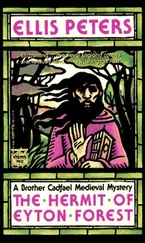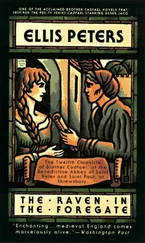Ellis Peters - The Pilgrim of Hate
Здесь есть возможность читать онлайн «Ellis Peters - The Pilgrim of Hate» весь текст электронной книги совершенно бесплатно (целиком полную версию без сокращений). В некоторых случаях можно слушать аудио, скачать через торрент в формате fb2 и присутствует краткое содержание. Жанр: Исторический детектив, на английском языке. Описание произведения, (предисловие) а так же отзывы посетителей доступны на портале библиотеки ЛибКат.
- Название:The Pilgrim of Hate
- Автор:
- Жанр:
- Год:неизвестен
- ISBN:нет данных
- Рейтинг книги:4 / 5. Голосов: 1
-
Избранное:Добавить в избранное
- Отзывы:
-
Ваша оценка:
- 80
- 1
- 2
- 3
- 4
- 5
The Pilgrim of Hate: краткое содержание, описание и аннотация
Предлагаем к чтению аннотацию, описание, краткое содержание или предисловие (зависит от того, что написал сам автор книги «The Pilgrim of Hate»). Если вы не нашли необходимую информацию о книге — напишите в комментариях, мы постараемся отыскать её.
The Pilgrim of Hate — читать онлайн бесплатно полную книгу (весь текст) целиком
Ниже представлен текст книги, разбитый по страницам. Система сохранения места последней прочитанной страницы, позволяет с удобством читать онлайн бесплатно книгу «The Pilgrim of Hate», без необходимости каждый раз заново искать на чём Вы остановились. Поставьте закладку, и сможете в любой момент перейти на страницу, на которой закончили чтение.
Интервал:
Закладка:
It was the woman he noticed first, bustling across the court from the gatehouse to the guest-hall with a basket on her arm, fresh from the Foregate market with new-baked bread and little cakes, soon after Prime. A careful housewife, to be off marketing so early even on holiday, decided about what she wanted, and not content to rely on the abbey bakehouse to provide it. A sturdy, confident figure of a woman, perhaps fifty years of age but in full rosy bloom. Her dress was sober and plain, but of good material and proudly kept, her wimple snow-white beneath her head-cloth of brown linen. She was not tall, but so erect that she could pass for tall, and her face was round, wide-eyed and broad-cheeked, with a determined chin to it.
She vanished briskly into the guest-hall, and he caught but a glimpse of her, but she was positive enough to stay with him through the offices and duties of the morning, and as the worshippers left the church after Mass he caught sight of her again, arms spread like a hen-wife driving her birds, marshalling two chicks, it seemed, before her, both largely concealed beyond her ample width and bountiful skirts. Indeed she had a general largeness about her, her head-dress surely taller and broader than need, her hips bolstered by petticoats, the aura of bustle and command she bore about with her equally generous and ebullient. He felt a wave of warmth go out to her for her energy and vigour, while he spared a morsel of sympathy for the chicks she mothered, stowed thus away beneath such ample, smothering wings.
In the afternoon, busy about his small kingdom and putting together the medicaments he must take along the Foregate to Saint Giles in the morning, to be sure they had provision enough over the feast, he was not thinking of her, nor of any of the inhabitants of the guest-hall, since none had as yet had occasion to call for his aid. He was packing lozenges into a small box, soothing tablets for scoured, dry throats, when a bulky shadow blocked the open door of his workshop, and a brisk, light voice said, “Pray your pardon, brother, but Brother Denis advised me to come to you, and sent me here.”
And there she stood, filling the doorway, shoulders squared, hands folded at her waist, head braced and face full forward. Her eyes, wide and wide-set, were bright blue but meagrely supplied with pale lashes, yet very firm and fixed in their regard.
“It’s my young nephew, you see, brother,” she went on confidently, “my sister’s son, that was fool enough to go off and marry a roving Welshman from Builth, and now her man’s gone, and so is she, poor lass, and left her two children orphan, and nobody to care for them but me. And me with my own husband dead, and all his craft fallen to me to manage, and never a chick of my own to be my comfort. Not but what I can do very well with the work and the journeymen, for I’ve learned these twenty years what was what in the weaving trade, but still I could have done with a son of my own. But it was not to be, and a sister’s son is dearly welcome, so he is, whether he has his health or no, for he’s the dearest lad ever you saw. And it’s the pain, you see, brother. I don’t like to see him in pain, though he doesn’t complain. So I’m come to you.”
Cadfael made haste to wedge a toe into this first chink in her volubility, and insert a few words of his own into the gap.
“Come within, mistress, and welcome. Tell me what’s the nature of your lad’s pain, and what I can do for you and him I’ll do. But best I should see him and speak with him, for he best knows where he hurts. Sit down and be easy, and tell me about him.”
She came in confidently enough, and settled herself with a determined spreading of ample skirts on the bench against the wall. Her gaze went round the laden shelves, the stored herbs dangling, the brazier and the pots and flasks, interested and curious, but in no way awed by Cadfael or his mysteries.
“I’m from the cloth country down by Campden, brother, Weaver by name and by trade was my man, and his father and grandfather before him, and Alice Weaver is my name, and I keep up the work just as he did. But this young sister of mine, she went off with a Welshman, and the pair of them are dead now, and the children I sent for to live with me. The girl is eighteen years old now, a good, hard-working maid, and I daresay we shall contrive to find a decent match for her in the end, though I shall miss her help, for she’s grown very handy, and is strong and healthy, not like the lad. Named for some outlandish Welsh saint, she is, Melangell, if ever you heard the like!”
“I’m Welsh myself,” said Cadfael cheerfully. “Our Welsh names do come hard on your English tongues, I know.”
“Ah well, the boy brought a name with him that’s short and simple enough. Rhun, they named him. Sixteen he is now, two years younger than his sister, but wants her heartiness, poor soul. He’s well-grown enough, and very comely, but from a child something went wrong with his right leg, it’s twisted and feebled so he can put but the very toe of it to the ground at all, and even that turned on one side, and can lay no weight on it, but barely touch. He goes on two crutches. And I’ve brought him here in the hope good Saint Winifred will do something for him. But it’s cost him dear to make the walk, even though we started out three weeks ago, and have taken it by easy shifts.”
“He’s walked the whole way?” asked Cadfael, dismayed.
“I’m not so prosperous I can afford a horse, more than the one they need for the business at home. Twice on the way a kind carter did give him a ride as far as he was bound, but the rest he’s hobbled on his crutches. Many another at this feast, brother, will have done as much, in as bad case or worse. But he’s here now, safe in the guest-hall, and if my prayers can do anything for him, he’ll walk home again on two sound legs as ever held up a hale and hearty man. But now for these few days he suffers as bad as before.”
“You should have brought him here with you,” said Cadfael. “What’s the nature of his pain? Is it in moving, or when he lies still? Is it the bones of the leg that ache?”
“It’s worst in his bed at night. At home I’ve often heard him weeping for pain in the night, though he tries to keep it so silent we need not be disturbed. Often he gets little or no sleep. His bones do ache, that’s truth, but also the sinews of his calf knot into such cramps it makes him groan.”
“There can be something done about that,” said Cadfael, considering. “At least we may try. And there are draughts can dull the pain and help him to a night’s sleep, at any rate.”
“It isn’t that I don’t trust to the saint,” explained Mistress Weaver anxiously. “But while he waits for her, let him be at rest if he can, that’s what I say. Why should not a suffering lad seek help from ordinary decent mortals, too, good men like you who have faith and knowledge both?”
“Why not, indeed!” agreed Cadfael. “The least of us may be an instrument of grace, though not by his own deserving. Better let the boy come to me here, where we can be private together. The guest-hall will be busy and noisy, here we shall have quiet.”
She rose, satisfied, to take her leave, but she had plenty yet to say even in departing of the long, slow journey, the small kindnesses they had met with on the way, and the fellow pilgrims, some of whom had passed them and arrived here before them.
“There’s more than one in there,” said she, wagging her head towards the lofty rear wall of the guest-hall, “will be needing your help, besides my Rhun. There were two young fellows we came along with the last days, we could keep pace with them, for they were slowed much as we were. Oh, the one of them was hale and lusty enough, but would not stir a step ahead of his friend, and that poor soul had come barefoot more miles even than Rhun had come crippled, and his feet a sight for pity, but would he so much as bind them with rags? Not he! He said he was under vow to go unshod to his journey’s end. And a great heavy cross on a string round his neck, too, and he rubbed raw with the chafing of it, but that was part of his vow, too. I see no reason why a fine young fellow should choose such a torment of his own will, but there, folk do strange things, I daresay he hopes to win some great mercy for himself with his austerities. Still, I should think he might at least get some balm for his feet, while he’s here at rest? Shall I bid him come to you? I’d gladly do a small service for that pair. The other one, Matthew, the sturdy one, he hefted my girl safe out of the way of harm when some mad horsemen in a hurry all but rode us down into the ditch, and he carried our bundles for her after, for she was well loaded, I being busy helping Rhun along. Truth to tell, I think the young man was taken with our Melangell, for he was very attentive to her once we joined company. More than to his friend, though indeed he never stirred a step away from him. A vow is a vow, I suppose, and if a man’s taken all that suffering on himself of his own will, what can another do to prevent it? No more than bear him company, and that the lad is doing, faithfully, for he never leaves him.”
Читать дальшеИнтервал:
Закладка:
Похожие книги на «The Pilgrim of Hate»
Представляем Вашему вниманию похожие книги на «The Pilgrim of Hate» списком для выбора. Мы отобрали схожую по названию и смыслу литературу в надежде предоставить читателям больше вариантов отыскать новые, интересные, ещё непрочитанные произведения.
Обсуждение, отзывы о книге «The Pilgrim of Hate» и просто собственные мнения читателей. Оставьте ваши комментарии, напишите, что Вы думаете о произведении, его смысле или главных героях. Укажите что конкретно понравилось, а что нет, и почему Вы так считаете.












